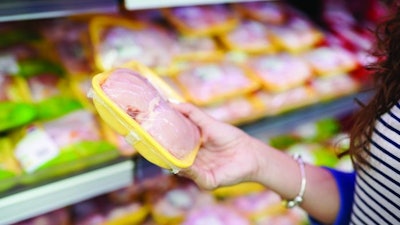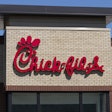
Consumers reliably indicate that sustainability is an important factor in poultry purchasing decisions. Product labels that show the eco-friendliness of a product are one way to communicate how improvements in the way poultry are fed, raised and processed are decreasing the environmental impact of the industry. Will consumers pay more for sustainably marketed products?
During “Net zero and the future of sustainable poultry production,” a panel discussion recorded by WATTPoultry.com and Evonik Animal Nutrition at the 2023 International Production & Processing Expo (IPPE), a trio of industry experts discussed the things poultry producers can do to accelerate net zero and other sustainability goals.
The panelists were:
- Andy Rojeski, head of strategy, investor relations and Net Zero programs, Pilgrim’s
- Faazi Adam, director of sustainability, animal nutrition line, Evonik
- Lara Moody, executive director of IFEEDER
Terrence O’Keefe, content director, WATT Global Media, moderated the talk.
Terrence O’Keefe: Surveys of consumers in the U.S. and in Europe suggest that there's a majority of consumers are really interested in sustainability. Now, some poultry companies have been very successful with charging more for no-antibiotics-ever (NAE), organic and other feeding schemes. Do we think that sometime between now and 2040 or 2050, there will be net zero branding on products and that poultry companies will be able to get a little more for those products?
Lara Moody: Well, I know one already in existence today. Kipster just opened their new farm right in the Midwest and they're producing net zero eggs that they're selling at Kroger. Whether they're getting a premium for them or not, I can't say, but Kipster is on the path to doing that. MPS Egg Farms, as well, is working to be able to document a lower carbon footprint feed that is feedstuff production, so it's absolutely happening. I think the challenge or the question is whether it's a sustainable, viable market for that premium.
Faazi Adam: We're seeing this in Germany as well. Where I'm based, there are lots of food products that you can get that have a low carbon label or climate friendly label or something like that. At least in Germany — from what I've seen — it tends to be packaged foods with a recognizable consumer brand who are able to use this kind of messaging on their products to attract a certain segment of consumers with a price premium.
It'll be interesting to see how that develops for the livestock industry. I I'm guessing that it will go sort of the same way where you see products with a recognizable brand that are specifically trying to appeal to this part of the market.
Andy Rojeski: I think one thing to consider is as we go forward — especially as folks are becoming more aware and more familiar with net zero and some of these climate commitments — that we’re thoughtful in terms of how we communicate. We don't want to put ourselves in a position where some folks get turned off by the concept because they feel that there’s a difference between here's what you said and here's what you really did.
I think the other thing to consider as we move forward together is around this concept that, given all the change and the desire to transform that food and ag industry, there's part of me that says, in some respects, you could argue it’s going to be table stakes. As we go forward and think about what's on the shelf, you think about the level of change that's involved, not just in the poultry business, but also with our grower partners and the folks on the farm.
We're talking about a total transformation of the business. To me, that provides some benefits. It might not necessarily translate into a significant premium. There's probably going to be some, but I think the big call out is that you can go ahead and you can start driving scale throughout the system. And when you drive scale throughout that system, I think it can provide better value. And when you do that, you have a chance to go ahead and truly transform the food and ag business.
















